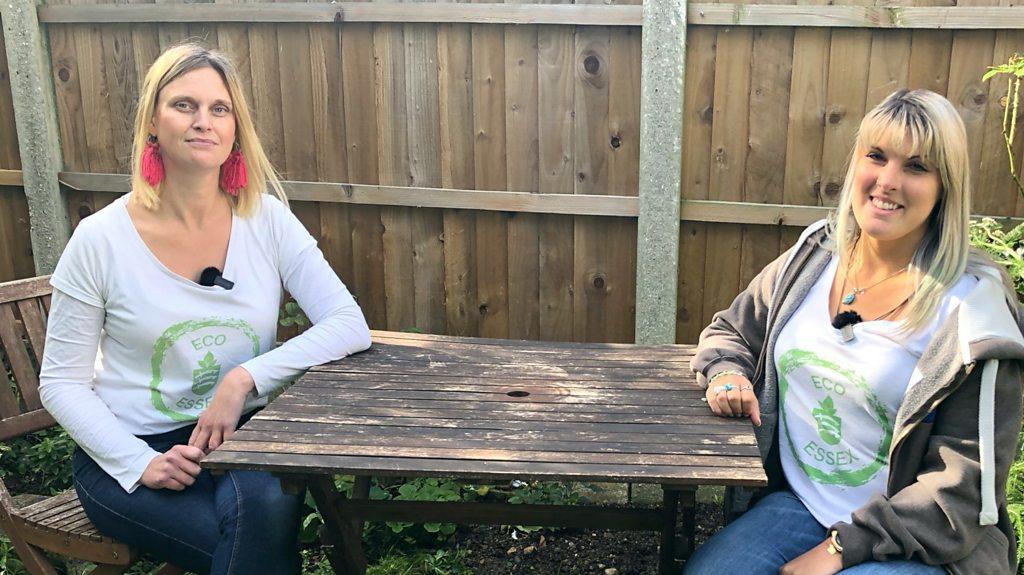East Suffolk Council: The warning system targeting recycled waste
- Published
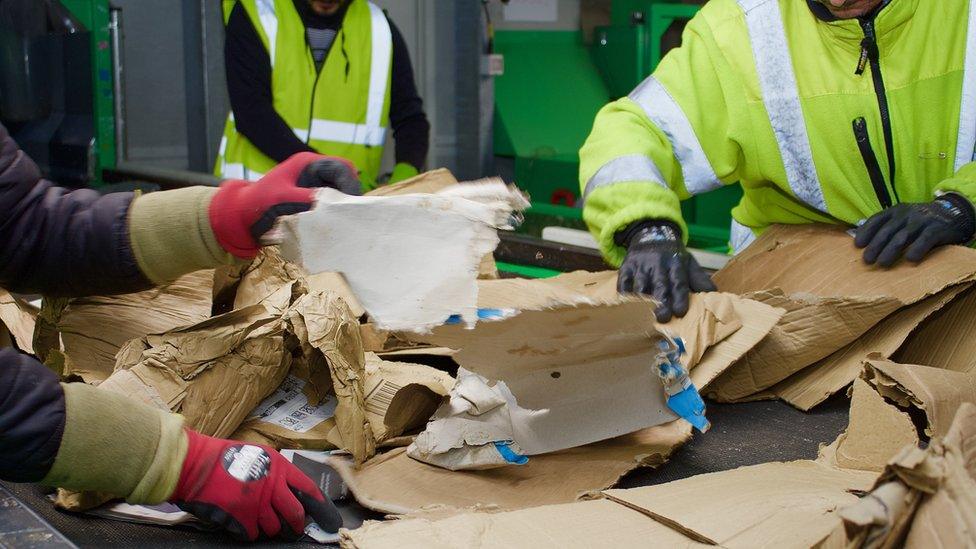
Rubbish being sorted on a conveyor belt for recycling at a plant in Great Blakenham near Ipswich
A council that has had to reject 20% of its rubbish collected in household recycling bins says people not sorting their waste our properly is "one of the biggest risks to the sustainability of the service". It has introduced a system where residents are given two warnings before collections are stopped. How is the crackdown working?

'Problematic'
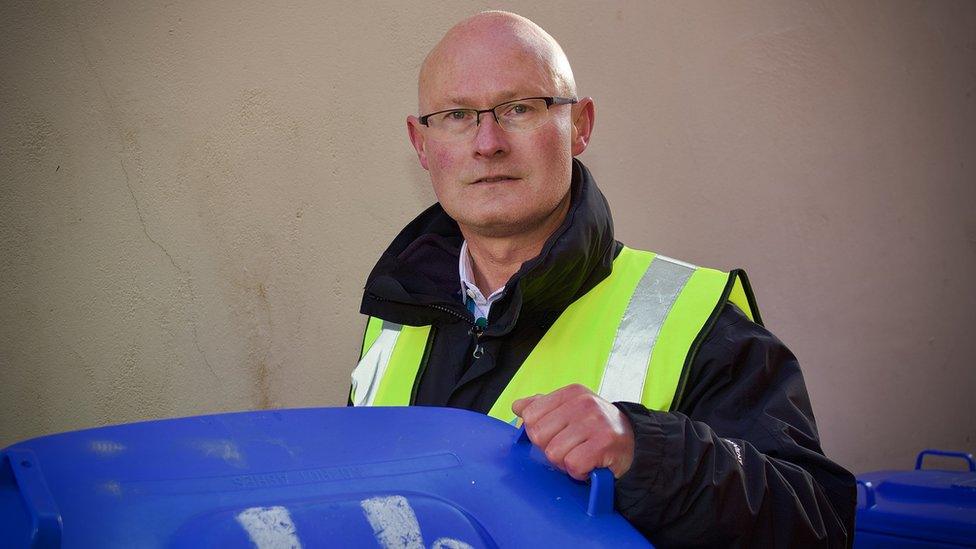
Simon Gilbert who works for East Suffolk Council checks recycled rubbish bins for the "wrong" items
By early afternoon on one bin round, nearly 200 recycling bins in Lowestoft have been issued with tickets because they contain non-recyclable waste.
According to East Suffolk Council, one in five of its blue bin lorry loads are sent for incineration or landfill because they contain the "wrong" rubbish.
Lowestoft is being highlighted as a town "where recycling is particularly problematic".
A crackdown is under way.
Repeat offenders - after receiving two warnings - will have their recycling collections halted.
"It's got worse because there's been more items purchased online during the pandemic," says Simon Gilbert, who inspects the bins for the council, and has identified a problem with parcel packaging being put in the wrong bins.
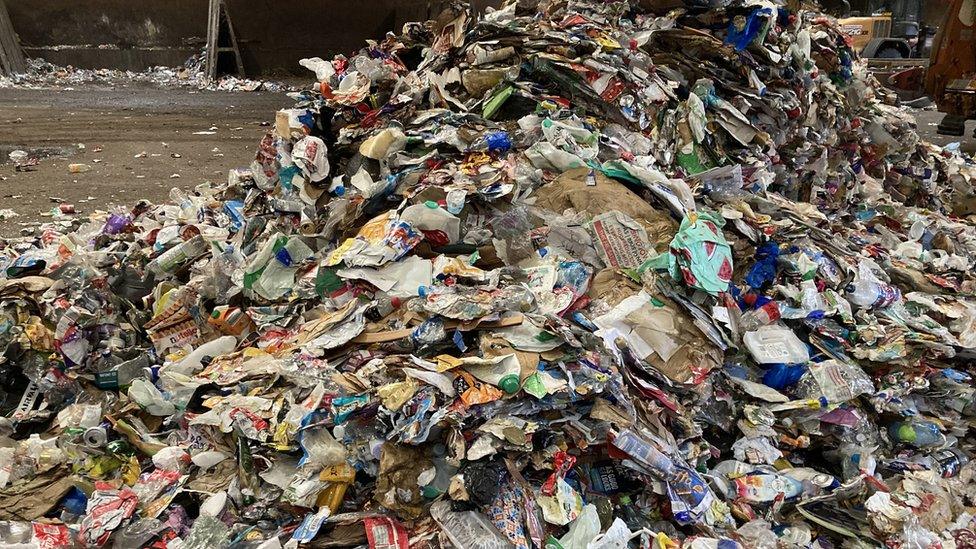
Thousands of tonnes of contaminated recycled rubbish has been sent to landfill or incineration at a cost of thousands of pounds to a council
When the warning system was introduced, people interviewed by BBC Radio Suffolk spoke of their concern, with one resident saying: "Some people don't understand because what you can recycle changes so often.
"They're encouraging people to become lazy and use the black bins."
But Mr Gilbert says it is all part of a bigger picture.
"We are hoping education will help people determine what goes in which bin," he says.
The council is distributing leaflets alongside letters which outline what can be recycled, and has set-up a phoneline, external.
"Call us if you are unsure what to recycle," says Mr Gilbert.

What is contaminating the recycling?
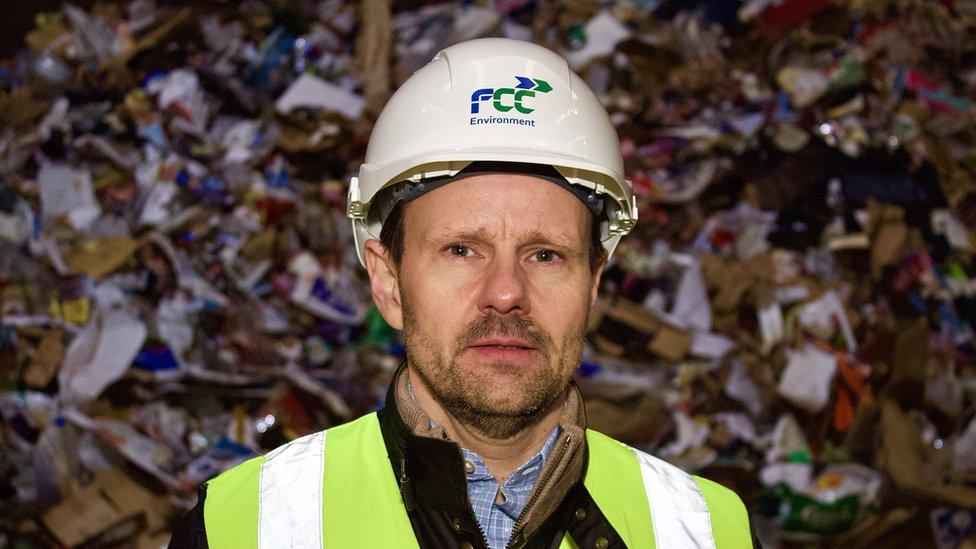
James Mallinder hopes more information and engagement with households will reduce contamination of recycled waste
The most common items incorrectly dumped in recycling bins includes glass bottles and jars, plastic shopping bags, black waste sacks, food waste, disposable nappies and cartons.
A duvet was among the items wrongly placed in a blue bin on the Lowestoft round.
"Many residents ask me what we can do to help the environment. The easiest thing we can do is recycle properly," says Conservative councillor James Mallinder.
"If you contaminate the bin it just means we can't recycle that material, it's expensive for the council and is really bad for the environment."
The councils says contaminated recycling is costing it an extra £100,000 a year.
But Mr Mallinder believes households "do want to do the right thing".
"From research that we've just had people just get a bit confused, and bad habits have formed," he says.

What happens to the waste?
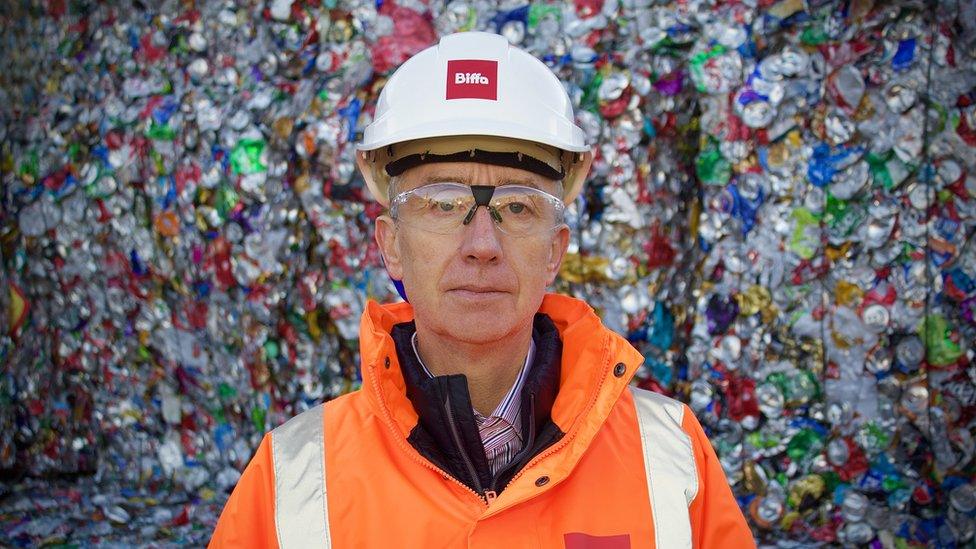
Steve Oulds wants people to look at recycling as factory process to remake materials as opposed to the disposal of waste
Recyclable waste is processed at Biffa's plant at Great Blakenham near Ipswich.
It is tumbled to remove small items before sorters remove contaminants - including thousands of nappies every day.
The end product is giant bales of tins, drinks cans, milk bottles and cardboard - all of which will be made into new products.
Steve Oulds, of Biffa Waste Service, says we need to think of waste management in a different way and see recycling as a way of sending something "onto the next part of its life".
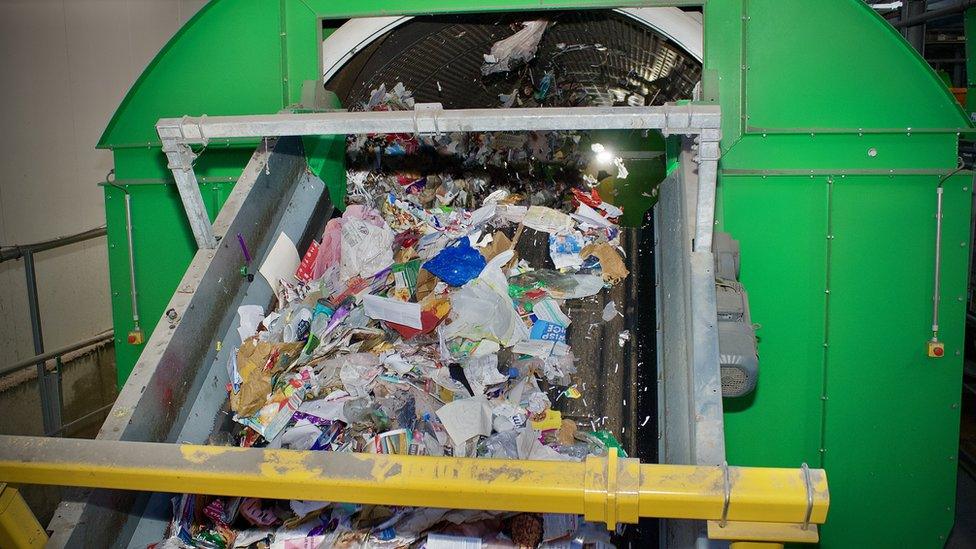
A recycling tumbler machine in operation
"If you're going to buy something from a shop, if you're buying a bit of cake and it's got a bit of coal in it, you're not going to want to buy that, and it's the exact same philosophy for us," he says.
"We want to get ourselves a good clean product, so that if it was a plastic bottle it'll be a plastic bottle again, if it was a newspaper, it can be made into a newspaper again.
"So that means the whole lifecycle of that bottle is closed-loop recycling; it's not been thrown away, we've put milk back in it; it's good for the economy; it's good for the environment.
"But if it is contaminated we can't do that; it gets thrown away; it's lost forever."
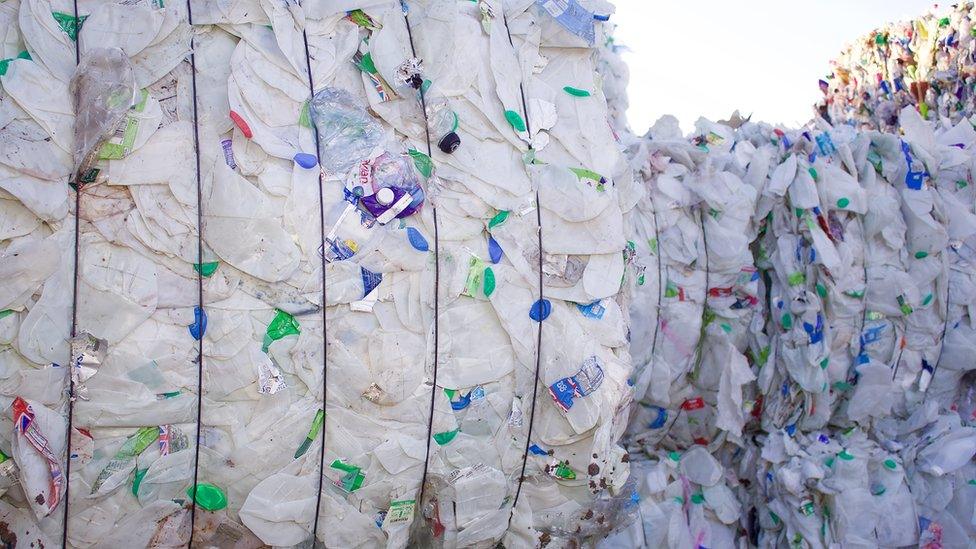
Bales of plastic milk bottles will be sanitised, pelleted and turned into new milk bottles

Find BBC News: East of England on Facebook, external, Instagram, external and Twitter, external. If you have a story suggestion please email eastofenglandnews@bbc.co.uk, external
- Published22 November 2021
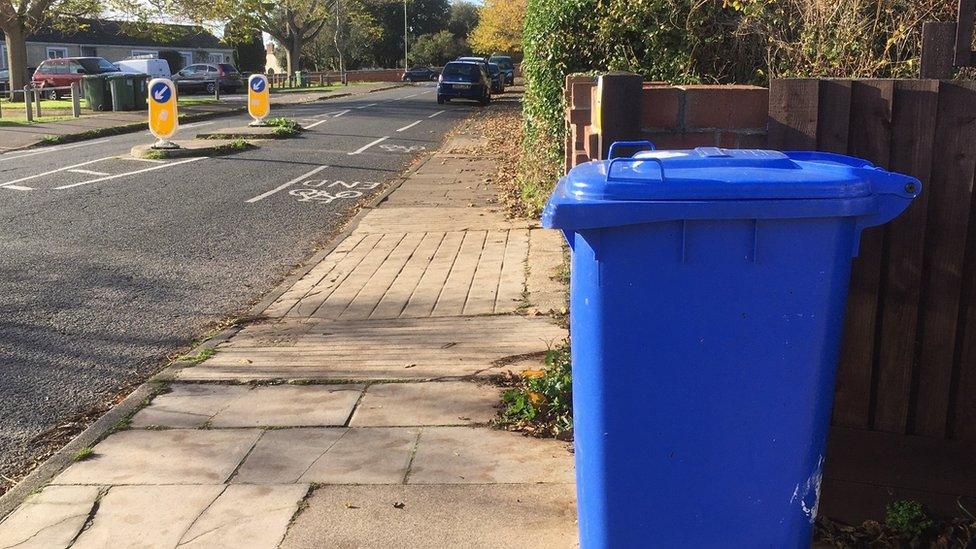
- Published5 November 2021
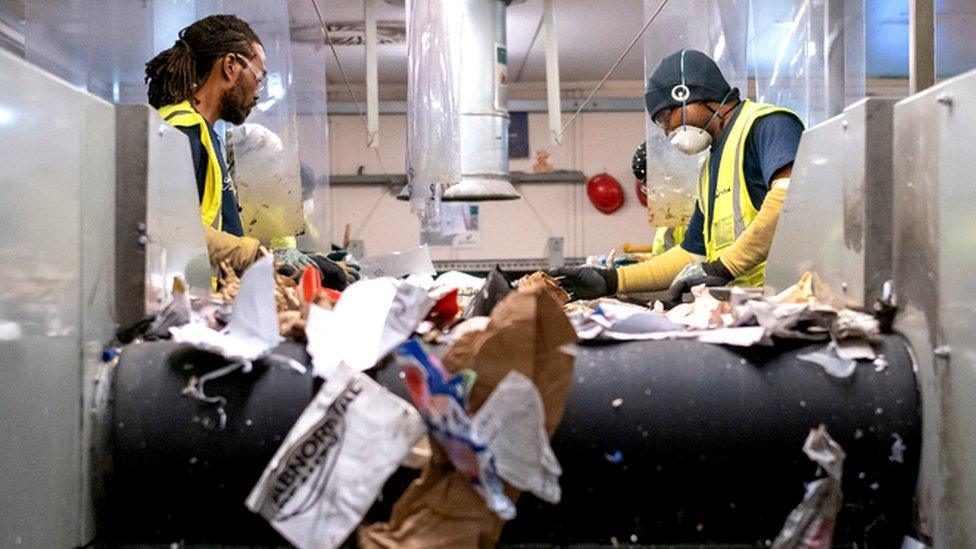
- Published5 November 2021
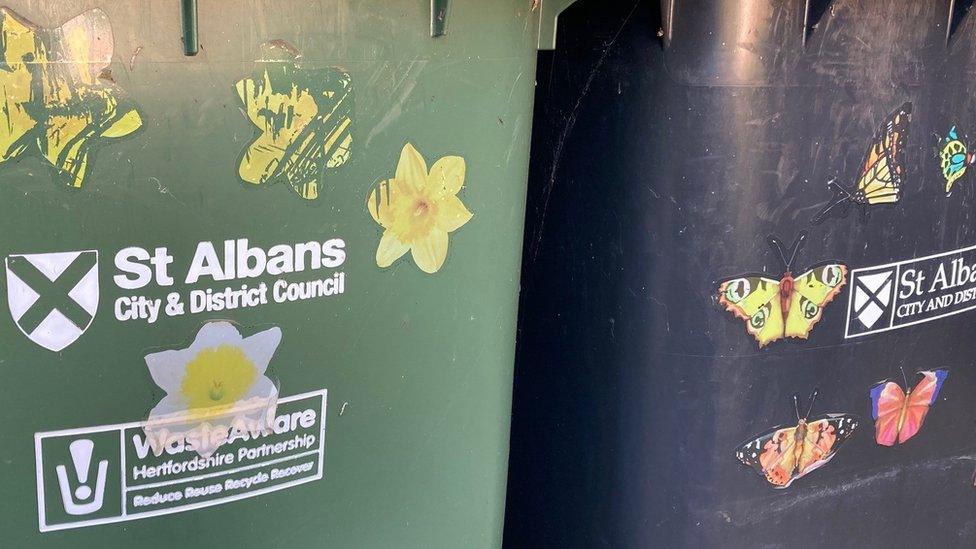
- Published27 October 2021
